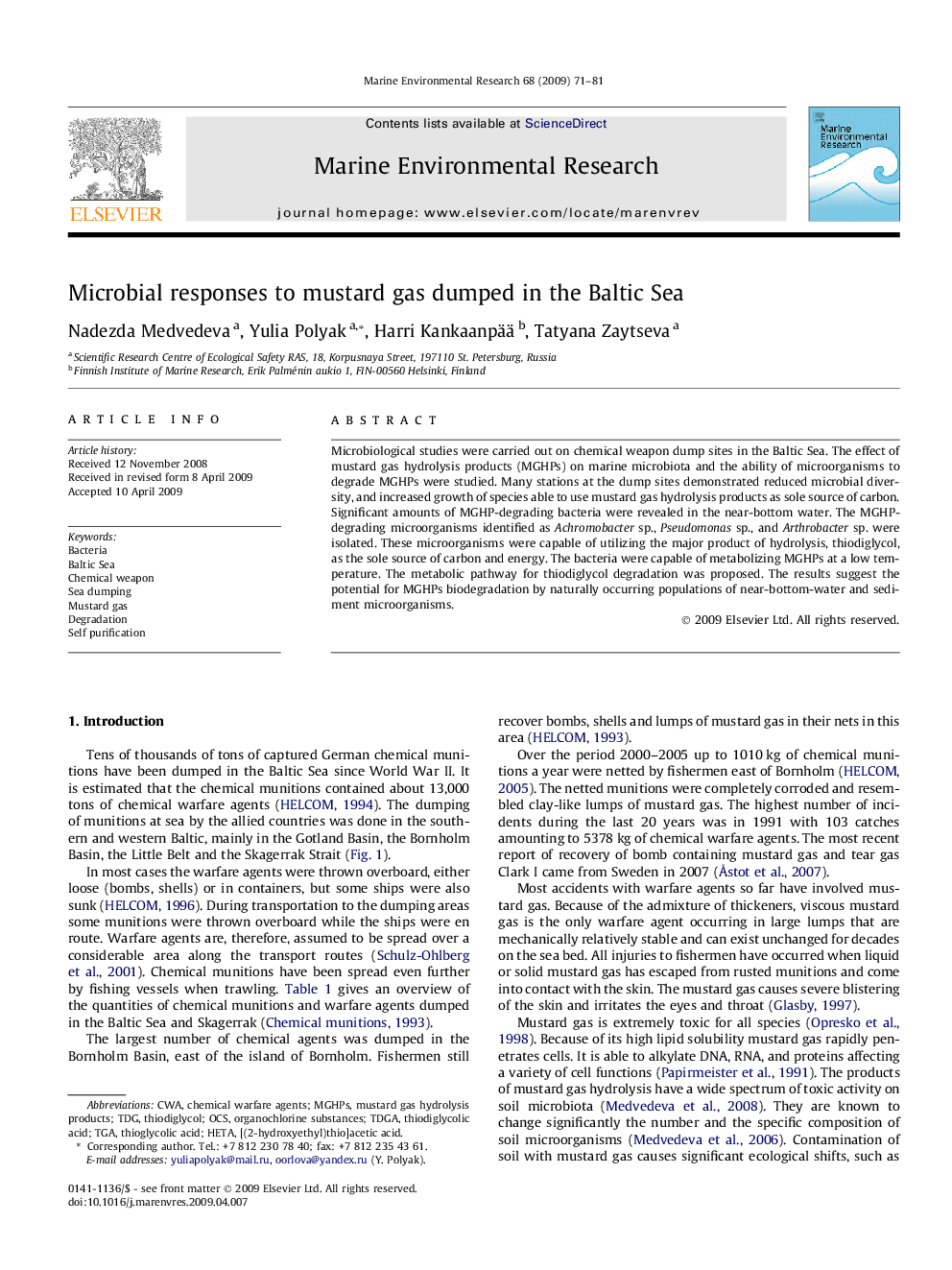| Article ID | Journal | Published Year | Pages | File Type |
|---|---|---|---|---|
| 4551440 | Marine Environmental Research | 2009 | 11 Pages |
Microbiological studies were carried out on chemical weapon dump sites in the Baltic Sea. The effect of mustard gas hydrolysis products (MGHPs) on marine microbiota and the ability of microorganisms to degrade MGHPs were studied. Many stations at the dump sites demonstrated reduced microbial diversity, and increased growth of species able to use mustard gas hydrolysis products as sole source of carbon. Significant amounts of MGHP-degrading bacteria were revealed in the near-bottom water. The MGHP-degrading microorganisms identified as Achromobacter sp., Pseudomonas sp., and Arthrobacter sp. were isolated. These microorganisms were capable of utilizing the major product of hydrolysis, thiodiglycol, as the sole source of carbon and energy. The bacteria were capable of metabolizing MGHPs at a low temperature. The metabolic pathway for thiodiglycol degradation was proposed. The results suggest the potential for MGHPs biodegradation by naturally occurring populations of near-bottom-water and sediment microorganisms.
